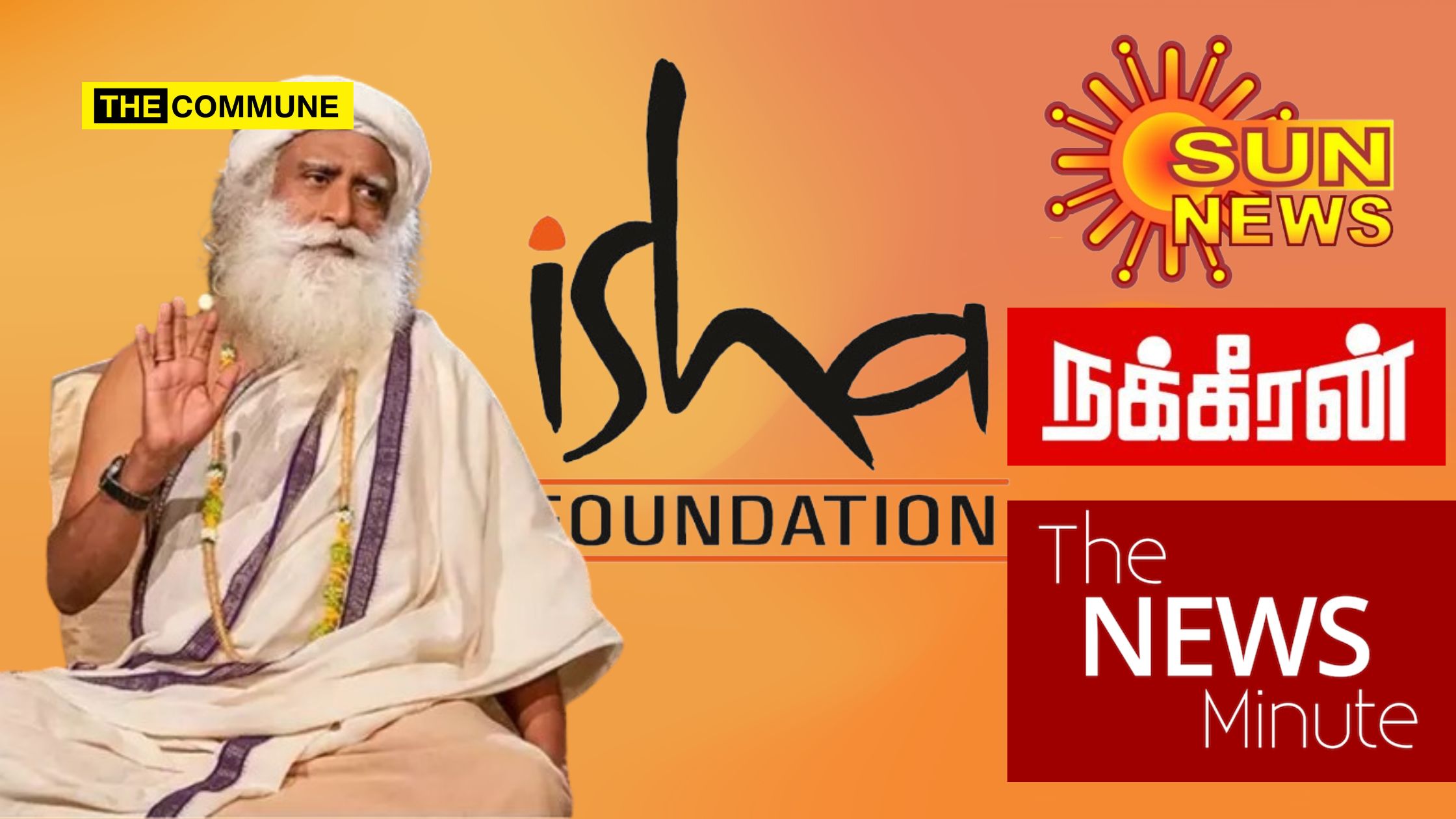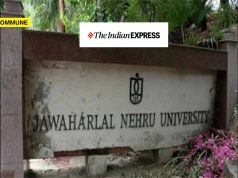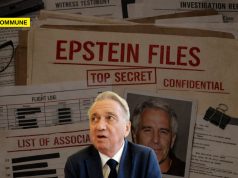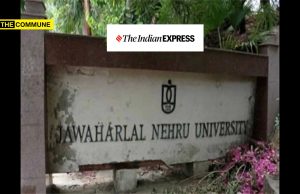
The Isha Foundation in Tamil Nadu has consistently faced attacks from Dravidianists and Periyarists who view the foundation as a threat to their pseudo-atheism, which opposes only Hinduism. Their ongoing mission is to tarnish the reputation of the Isha Foundation. They devise strategic plots to damage its image, leveraging their favored news media for a ‘Hit and Run’ job, followed by deliberate silence. The Dravidian media in Tamil Nadu refrains from follow-ups that do not align with their agenda.
This orchestrated effort aims to create a perception among the public that Isha is at fault. However, there is always another side to the story. Despite all allegations, every accusation against the Isha Foundation has been proven false in a court of law.
Myth#1 – Crematorium Case
The all-famous The News Minute (TNM), sympathetic to the Dravidianist and Periyarist cause, peddled misinformation that an FIR had been lodged against the Isha Yoga Foundation in Coimbatore, following a complaint from the Thanthai Periyar Dravida Kazhagam (TPDK). Allegedly, TPDK activists were attacked on 15 June 2024 while visiting an allegedly illegally constructed crematorium at Boluvampatti village, attributed to Isha Yoga.
TNM strategically presented one side of the story, portraying the Isha Foundation negatively that TPDK’s general secretary informed police that their vehicle was stopped and its window broken by individuals associated with Isha Yoga. However, the dispute between TPDK and the Isha Yoga center stemmed from TPDK activists visiting without official sanction, claiming to be a ‘Fact-Finding Committee’. A scuffle ensued, following which TPDK tactically filed an FIR at Alandurai police station, playing the victim. Rather than stopping there, TNM promoted TPDK almost as if it were a tribal activist group, highlighting allegations against the Isha Foundation that had already been refuted.
The Tamil “journal” Nakheeran presented a narrative from Periyarists and Dravidianists suggesting that there are ample crematoriums in the vicinity, implying that Isha Foundation’s construction of one is arbitrary and linked to mysterious deaths.
The truth of the matter concerning the crematorium is that the area is predominantly inhabited by Scheduled Tribes. These villages lack adequate cremation facilities, with the nearest crematorium located 20 km away. In response to local requests, the Isha Yoga Centre initiated construction of a modern electric crematorium to serve these villages. In fact, residents from six villages near the Poondi hills, including several Scheduled Tribes communities, petitioned the Coimbatore District Collector to take action against those spreading rumors about the upcoming Isha crematorium. They clarified that the construction was a response to their genuine need for closer cremation facilities, dispelling misinformation spread by a few individuals.
Earlier, Subramanian, identified as a Dravidianist, filed a case against the crematorium in the Madras High Court. During the court proceedings, the Madras High Court directed the Pollution Control Board to inspect the electric crematorium and provide a detailed report. On 14 June 2024, members of the TPDK, posing as a ‘Fact-Finding Committee‘, attempted to enter the Isha premises. This action led to a confrontational situation between the administrators and TPDK members. It’s worth noting that the Coimbatore District Court had already issued an order prohibiting unauthorized individuals from accessing the construction site of the electric crematorium.
The Madras High Court has intervened to halt the Alandurai police in Coimbatore district from concluding their investigation into a criminal intimidation case involving C.R. Dinesh Raja, an administrator at the Isha Yoga Centre and directed the registration of a case and the submission of an investigation report against members of TPDK. Justice G Jayachandran provided temporary relief by issuing an order to restrain any final report until further notice, scheduling a returnable date for 21 August 2024. The judge expressed skepticism regarding the complaint, noting its lack of specific details about the alleged offence and questioned the authority under which they attempted to enter the Isha premises.
Interestingly, neither TNM nor other Dravidianist media outlets, which previously portrayed the Isha Yoga Foundation in a negative light, reported on these court proceedings. These cases effectively discredited the false allegations made by the TPDK, which sought to present itself as a victim. It is evident that their agenda primarily targets Hinduism rather than any genuine tribal or environmental activism.
Myth#2 – The Elephant Corridor & Isha Mahashivaratri Ban
The Isha Foundation itself clarified that, In the affidavits submitted by the Tamil Nadu Forest Department to the National Green Tribunal’s Southern Zone, Chennai, there is no mention that Isha is situated within an elephant corridor. Similarly, the Ministry of Environment, Forests & Climate Change, in its counter affidavit, does not indicate that Isha falls within an elephant corridor. Additionally, the Principal Chief Conservator of Forests (PCCF), in response to an RTI query, did not include Isha or its vicinity in the list of elephant corridors in Tamil Nadu. The Gajah Report by the Elephant Task Force and the document ‘Right Of Passage – Elephant Corridors of India’ by the Wildlife Trust of India also do not identify the area where Isha is located as an elephant corridor. Eminent scientists specializing in elephant conservation have explicitly stated that the Isha Foundation is not situated near an elephant corridor.
Every year as Mahashivaratri approaches, there are cases filed against the Isha Yoga Center for organizing the celebration. Various groups aligned with Periyarist and Dravidian ideologies seek to ban the event, often making headlines in Tamil media, claiming that the festivities could disturb animals in the nearby hilly areas. However, after the initial uproar, these claims typically fade into silence.
Regarding the Vetriselvan case at the southern bench of the National Green Tribunal, the court allowed the Isha Foundation to conduct its Mahashivaratri festival, provided it obtained the necessary permissions from the district administration, police, and forest department. The case was filed due to concerns that the foundation had been built on encroached land and that the festival could disturb an elephant corridor, potentially leading to human-wildlife conflict.
In its ruling, the Tribunal noted, “The Regional Chief Conservator of Forests confirmed that there is no encroachment by the Isha Foundation in the forest area. Although the area is not designated as an elephant corridor, restrictions have been imposed due to the passage of elephants in that region. The Tribunal directed the removal of certain structures erected during the Maha Shivaratri function and mandated the maintenance of a green belt to mitigate noise pollution.” The Tribunal also acknowledged that matters concerning encroachment are pending before the High Court and refrained from making decisions on those issues. It instructed the Tamil Nadu State Pollution Control Board to ensure that noise levels during the event comply with permissible limits.
Throughout this process, the Isha Foundation has consistently denied any violation of environmental laws and has repeatedly rejected claims that it is located within an elephant corridor. The Tribunal’s order explicitly stated that no incidents of human-wildlife conflict have been reported during the Maha Shivaratri festival, and it affirmed that the Isha Yoga Centre is not situated within an elephant corridor.
Even the recently concluded Mahashivaratri festival organized by the Isha Foundation faced legal challenges, some Dravidianists sought a ban through the High Court. The DMK-owned Sun News promptly highlighted this as breaking news, but the festival proceeded as planned. Shouldn’t the media’s responsibility be to also cover why the celebration was allowed to continue? Despite this, media sympathetic to the Dravidianist cause continues to allege that the Isha Yoga Center is situated within an elephant corridor.
Myth#3 – Brainwashing Volunteers
Several allegations were leveled against the Isha Foundation, including one highlighted by Dravidianist groups regarding a case filed by a retired professor. He accused the Center of brainwashing his two daughters into becoming sanyasins, leading to a Habeas Corpus petition in the Madras High Court. This narrative gained traction in Dravidianist media outlets but was ultimately debunked by the Madras High Court itself through a fact-finding process.
The Division Bench of Justices S. Nagamuthu and V. Bharathidasan dismissed the plea after reviewing the report of the Principal District Judge (PDJ), who had visited the Isha Yoga Center and interviewed Maa Mathi and Maa Maayu on August 10. The court’s order in H.C.P.No.1656 of 2016 highlighted that the PDJ’s report “categorically mentioned that there is no truth in the allegation, and that the individuals are staying at the Foundation voluntarily.”
In their ruling, the bench refuted the baseless allegations against the foundation, stating, “We are satisfied that the individuals are staying in the Isha Foundation on their own volition following a path of Sanyasin which they like. Therefore, no relief as prayed for in this petition can be granted… As a result, this Habeas Corpus Petition is dismissed”
The Isha Foundation expressed gratitude to the Madras High Court for affirming the truth and putting an end to misinformation spread by detractors against them.
Furthermore, the foundation clarified that all accusations of captivity, brainwashing, or coercion into sanyas or brahmacharya are entirely false. It emphasized that the establishment aims to promote human wellbeing, and the volunteers, numbering over 3 million worldwide, participate willingly. Approximately 1500 full-time volunteers, including brahmacharis and married individuals, reside at the Isha Yoga Center by their own choice and can leave freely anytime.
Specifically addressing the case of Maa Mathi (34) and Maa Maayu (31), who have been at the ashram for seven years and chose brahmacharya five years ago, the foundation reiterated that their decision was entirely voluntary and reflects their spiritual path. Brahmacharya, seen as a sacred commitment in Isha, is not imposed but carefully considered by applicants through introspection and self-assessment. The foundation emphasized that the idea of forcing brahmacharya on anyone is against their principles, and acceptance into this path is based on personal commitment, integrity, and sincere aspiration.
Myth#4 – Missing Volunteers Case
Another accusation is the volunteers were mysteriously missing but this too was busted. The Tamil Nadu police announced on 18 April 2024 that they had cleared Isha Foundation of any wrongdoing regarding the disappearance of six volunteers from its yoga center at the base of Velliangiri in Coimbatore district. They stated that most of the missing volunteers had returned, having left the center for personal reasons.
This announcement came during proceedings before Justices MS Ramesh and Sunder Mohan, who were overseeing a habeas corpus petition filed by C Thirumalai of Kulasekarapatti in Tirunelveli district, concerning his missing brother C Ganesan since March 2023.
According to the petitioner, Ganesan was serving as a volunteer at the yoga center. He received a call from the center on 2 March 2024, inquiring about Ganesan’s whereabouts, which alerted him to his brother’s disappearance. The center’s administrator, Dinesh, filed a complaint with the Alandurai police on 5 March 2024, leading to a missing person case being registered. As Ganesan remained untraceable, Thirumalai filed the habeas corpus petition.
During the hearing, Additional Public Prosecutor E Raj Thilak informed the court that 36 individuals, including employees and volunteers at the Isha Yoga Center, had been questioned. However, more time was requested to compile a comprehensive status report.
Responding to queries about other missing volunteers mentioned in previous hearings, the prosecutor stated that while five more volunteers were initially reported missing, most had since returned to the center, attributing their absence to personal reasons. The Madras High Court cautioned that if the petitioner, who lodged the lawsuit concerning his brother’s disappearance, fails to attend the hearing, the case will be dismissed. Notably, neither the petitioner nor his attorney were present during the hearing, as observed by the bench. Consequently, the judges took note of the submissions made in their absence and instructed the High Court registry to schedule the case for 7 June 2024, with the designation “For Dismissal,” emphasizing that it would represent the final opportunity for the petitioner to appear.
Myth#5 – Isha’s Samskriti Case
Vetriselvan, who had previously pushed for a ban on the Isha Yoga Mahashivaratri celebration, also sought to restrict Isha schools that teach Vedic knowledge and traditional Indian martial arts like Kalari. However, the Madras High Court dismissed a petition filed by lawyer M. Vetriselvan, which sought an interim injunction to prevent an Isha school from admitting children aged six to eight and teaching Veda and other subjects. The court criticized Vetriselvan’s petition, stating it attempted to constrain educational diversity.
The First Bench, comprising Chief Justice Sanjay Kishan Kaul and Justice M. M. Sundresh, observed that India has various educational systems, noting the historical method where children learned under scholars, and later the adoption of boarding schools influenced by English education. The court emphasized that today, multiple forms of education exist and it is inappropriate for any individual to impose a singular model. The bench dismissed the application, viewing it as having potential ulterior motives.
The case stemmed from Vetriselvan’s original PIL concerning the Isha Foundation’s activities in the Vellingiri foothills of Coimbatore, specifically focusing on Isha Samskriti, a school for children aged 6 to 18, housed in what he termed an ‘unapproved’ building. He alleged violations of Constitutional Articles 14 and 21, and criticized the School and Elementary Education departments for purportedly neglecting their duties. Vetriselvan claimed that the foundation did not adhere to Tamil Nadu government standards for education, thereby depriving children of their right to free and compulsory education from ages 6 to 14.
It is to be noted, the Isha Samskriti program represents a unique amalgamation of Yogic practices, traditional Indian arts like Bharatanatyam and Classical Music, and martial arts such as Kalaripayattu, rooted in Dhanurveda, aimed at fostering physical and mental balance and stability in children. These ancient art forms, far from being mere entertainment or hobbies, have served as profound spiritual practices for millennia. The program also emphasizes Samskrit, a language renowned for its spiritual depth, as a significant component of the curriculum. Alongside this, children study English and basic Mathematics.
In an environment characterized by dedication, discipline, and focused learning, every aspect of the children’s daily lives is meticulously designed to nurture their inner potential. Starting around ages 7 to 8, they undergo a comprehensive, life-oriented education that continues until they reach 18. Through this holistic approach, children evolve into dynamic, competent, and committed individuals poised to positively impact the world around them.
In conclusion, the Isha Foundation has faced persistent and unfounded attacks from Periyarist and Dravidianist groups, who have repeatedly defamed it with fabricated narratives and false allegations. Despite courts consistently debunking these claims as baseless, these efforts continue unabated. The biased portrayal by sympathetic media in Tamil Nadu, which often presents only half-truths, remains a troubling reality.
Interestingly, Karunya University, designated as a Christian minority institution, has not been subjected to similar levels of litigation and allegations by these groups. Environmentalists have pointed out that the institutions face similar issues regarding violations and lack of approvals. For instance, Karunya University, sprawling over 800 acres, is located in an elephant corridor that includes wetlands and numerous water sources of the River Noyyal.
(With inputs from Einstein & Agathiyar)
Subscribe to our channels on Telegram, WhatsApp, and Instagram and get the best stories of the day delivered to you personally.




